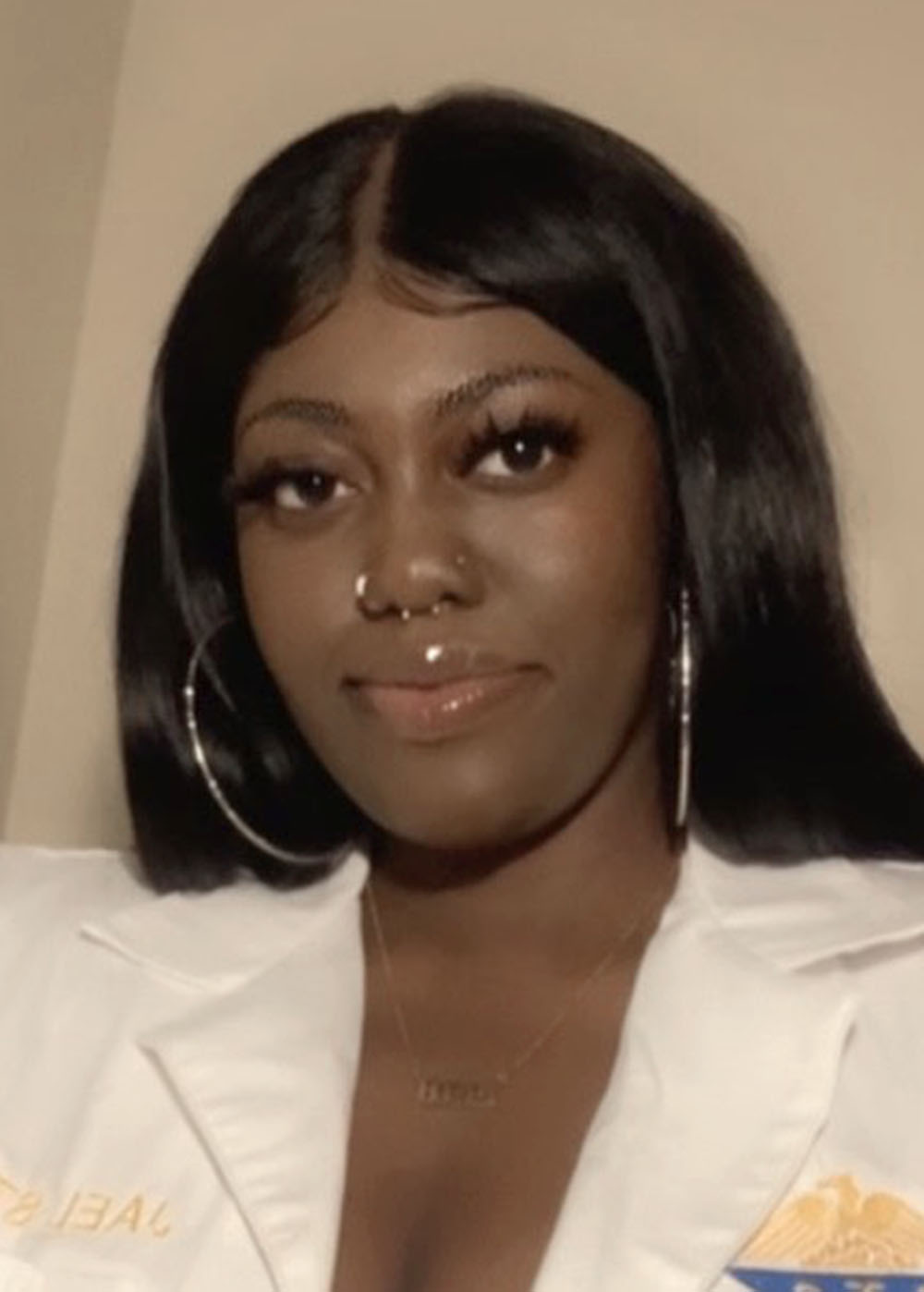December 15, 2020
Jessica Pope
Communications and Media Relations Coordinator
Jael Stanton Wins Best Poster Honors at 73rd Gaseous Electronics Conference

|
| Jael A. Stanton |
VALDOSTA — Jael A. Stanton’s “Gas Kinetic Modeling of Titan Atmospheric Entry Plasma” won Best Poster honors in the undergraduate research category at the 73rd annual Gaseous Electronics Conference.
Stanton conducted this award-winning research with her classmate, Nya M. Lampkin, under the guidance of Dr. Dereth J. Drake, associate professor of physics at Valdosta State University.
“Our research focuses on the interpretation and continuation of what the Huygens mission discovered about Titan’s unique atmosphere,” she explained. “It’s the only moon in the solar system that has its own atmosphere. In the mission, a probe was sent through the atmosphere, but what was noticed was the probe lost a substantial amount of kinetic energy during the entry phase. So we proposed that a magnetohydrodynamic generator should be used to extract energy from the plasma that forms around the probe during entry and reload the battery of the probe. In order to be able to approach such a task, we first needed to know the chemical composition of the atmosphere and how the pressure and temperature changes with altitude. Then we needed to find the different temperature changes of the electrons within the plasma to know how much energy to extract from it.”
According to NASA, the European Space Agency’s Huygens Probe “was a unique, advanced spacecraft and a crucial part of the overall Cassini mission to explore Saturn” and “its complex system of rings and moons.” It landed on Titan, Saturn’s largest moon, on Jan. 4, 2005, and collected data for about 3.6 hours, both in Titan’s atmosphere and on its surface. It was the first landing on a moon in the outer solar system.
During the five-day Gaseous Electronics Conference, which was conducted virtually due to the ongoing global health crisis surrounding COVID-19, Stanton was able to expand her knowledge of low temperature plasma science and collision physics by listening to experts from around the world discuss the latest ideas on the physical and chemical processes and dynamics taking place in partially ionized, collisional plasma and between the atoms, molecules, charged particles, photons, waves, and fields.
The Gaseous Electronics Conference has a long history of presenting fundamental and basic science contributions on plasma sources, diagnostics, simulation, plasma chemistry, basic phenomena, and atomic and molecular processes. The event has become leading venue for reporting on emergent areas of plasma-biotechnology, plasma medicine, multiphase plasmas, environmental applications, and atmospheric-pressure plasma systems.
More than 560 scientists and engineers from 27 countries participated in this year’s event, Drake said. Only two undergraduate student research projects earned Best Poster honors, she added.
Stanton earned a Bachelor of Science in Chemistry from VSU on Dec. 14. She plans to continue her education in graduate school, where she will pursue a Master of Science in Astronomy and a career in astrochemistry.
As an undergraduate student at VSU, Stanton was a Georgia HOPE Scholar. She was a member of Student Members of the American Chemical Society, the American Chemical Society, and the American Physical Society. She provided outreach to area elementary and middle school children during Science Saturday and Student Members of the American Chemical Society events on campus and in the community.
In addition to the 73rd annual Gaseous Electronics Conference, Stanton presented this Titan-based research at the Southeastern Section of the American Physical Society Conference in November. She has also presented research in marine chemistry, environmental chemistry, and physical chemistry at VSU Undergraduate Research Symposium events.
Stanton is the daughter of Tammy and Aundre Stanton, who she says “definitely deserve a shoutout because they were the ones to put me in all those science programs as a kid.” She calls Lithonia, Georgia, home.
On the Web:https://www.valdosta.edu/chemistry/
http://www.apsgec.org/gec2020/index.php
Newsroom
- Office of Communications Powell Hall West, Suite 1120
-
Mailing Address
1500 N. Patterson St.
Valdosta, GA 31698 - General VSU Information
- Phone: 229.333.5800
- Office of Communications
- Phone: 229.333.2163
- Phone: 229.333.5983